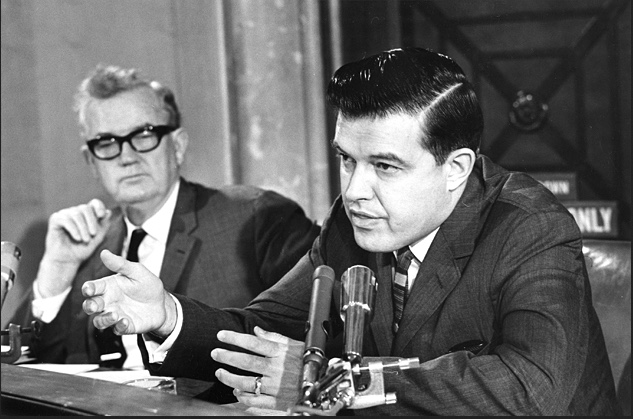It is time for Congress to investigate the emergency authorities given to the chief executive.
In 1975, after public revelations of intelligence abuses concealed from all but a handful of members of Congress, the United States Senate created a temporary committee to study the nation’s spy agencies — something no standing committee had ever attempted.
What came to be known as the Church Committee, after its chairman, Senator Frank Church of Idaho, recommended broad reforms, including the creation of a permanent Intelligence Oversight Committee. Former Vice President Walter Mondale and I are the last surviving members of the Church Committee.
We have recently come to learn of at least a hundred documents authorizing extraordinary presidential powers in the case of a national emergency, virtually dictatorial powers without congressional or judicial checks and balances. President Trump alluded to these authorities in March when he said, “I have the right to do a lot of things that people don’t even know about.” No matter who occupies the office, the American people have a right to know what extraordinary powers presidents believe they have. It is time for a new select committee to study these powers and their potential for abuse, and advise Congress on the ways in which it might, at a minimum, establish stringent oversight.
Secret powers began accumulating during the Eisenhower years and have grown by accretion ever since. The rationale originally was to permit a president to exercise necessary control in the case of nuclear war, an increasingly remote possibility since the Cold War’s end. An obscure provision in the Communications Act of 1934 empowers the president to suspend broadcast stations and other means of communication following a “proclamation by the President” of “national emergency.” Powers like these have been deployed sparingly: A few days after the Sept. 11 attacks, a proclamation declaring a national emergency, followed by an executive order days later, invoked some presidential powers, including the use of National Guard and U.S. military forces.
Read full article




